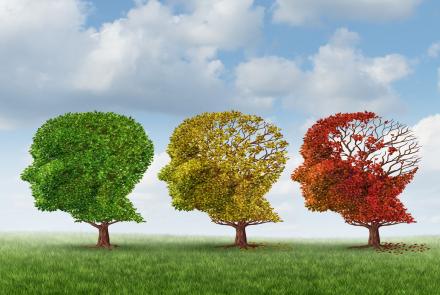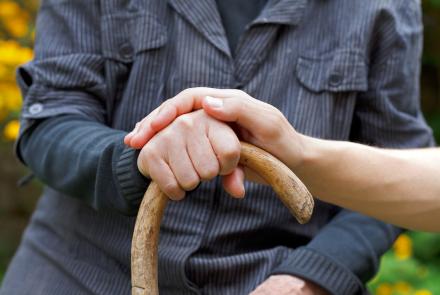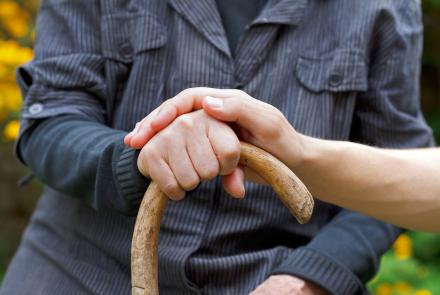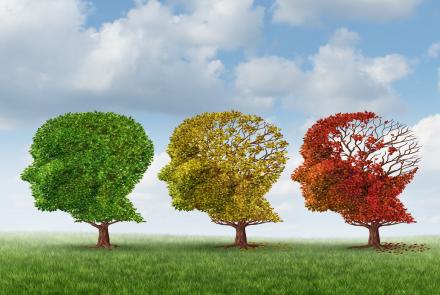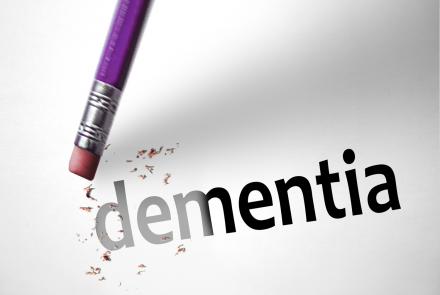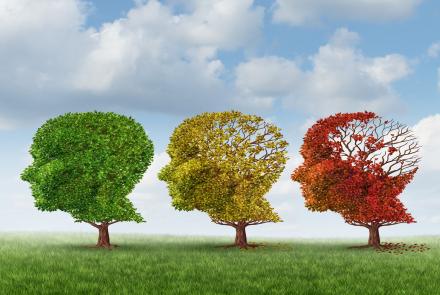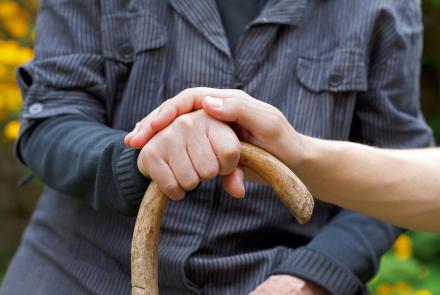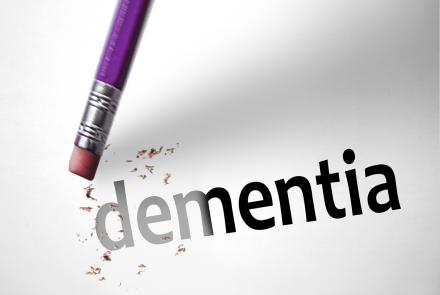
Neha Sinha, a clinical psychologist by training and dementia specialist, is the co-founder and CEO of Epoch Eldercare. She shares her knowledge on agitiation in Dementia, the triggers of agitation and how best to handle it.
What is Dementia in everyday life?
Visualise a situation where you suddenly open your eyes and can’t make any sense of where you are or what you are doing there? Your surroundings seem unfamiliar to you...and there is a person in your room, giving you all sorts of instructions.. and he wants you to do something but seems like he is speaking another language. Worse still, imagine you look at the mirror and see a stranger in it.
How do you think you would react?
Cut to another situation, let’s call it Situation 2, where imagine that you are uncomfortable: let’s say you have heartburn. Now imagine that you can’t remember the word ‘heartburn’, ‘acidity’, ‘digestion’ or ‘stomach’. How would you describe your discomfort? Adding further, imagine that you can’t even identify it’s heartburn and just continue to feel terribly uncomfortable. Somebody is serving you puris, you don’t feel like eating it and you have no idea how to communicate this to anyone.
How do you think you would react?
To begin with, both situation 1 and 2 are everyday scenarios for somebody with dementia.
Inability to perceive and express emotions, asphyxia, difficulty in following instructions, disorientation in place and person are some of the several symptoms that are part of the global cognitive decline that happens in dementia. Typically cognitive symptoms are accompanied by BPSD (Behavioural and Psychiatric symptoms of dementia); one of them is often agitation or aggression.
Agitation: Fallout of Dementia
The etiology of the behavioural and psychiatric symptoms is not uniform and is often multifactorial. At the biological level, many of the behavioural symptoms have been linked to changes in cholinergic (Acetylcholine), adrenergic (Norepinephrine) or serotonergic (Serotonin) levels. The cells of these neurotransmitter systems have neurofibrillary tangle deposits in them, which could also contribute to the changes in their levels.
Very often we accept agitation as a natural part of dementia- just like memory loss. It may be true, but not entirely. Generally agitation becomes noticeable in the later stages of dementia when language abilities begin to decline. Following that, agitation is very often a mode of communication...often to convey discomfort or an unfulfilled need- just like in the situation 1 & 2 described above. It could be as small as the background TV noise or as significant as pain. It is also a signal for the caregiver to pay attention and put on the investigative cap to decode the person’s actions, mumbles, body language and so on.
Dealing with agitation can be a very draining experience for the caregiver and can often leave them feeling helpless and confused. One of the best ways to predict behavioural changes is to keep a ‘log’ of each incident, times when it happens, what events preceded it and who were the people involved? After analysing the log for a few weeks, one may be able to predict and even reduce the episodes.
Possible Dementia Triggers
Here are some of the triggers to keep in mind :
- Changes in the environment: Has the person been moved to a new home or room, have we moved around his favourite furniture or the familiar easy chair he is used to?
- Inability to communicate: Difficulty in finding the right word or inability to express oneself is often a trigger: always give them prompts during a conversation
- New faces: Is there a new caregiver, house- guest or a visitor? New faces are always difficult to adjust to.
- Physical discomfort: Check for any facial contortions, grimacing on movements etc to identify pain. Rule out any changes in vitals, digestive issues, toothache or blurred vision.
- Hunger or Thirst: Since judgment is also affected, people with dementia find it difficult to recognise symptoms of hunger and thirst and the result is irritable behaviour.
- Lack of sleep: A disturbed sleep cycle is a very common issue as well as a contributor to agitated behaviour. Also the fact that often the person is coaxed to ‘go to sleep’ when s/he doesn’t want to or thinks it’s daytime
- Background noises : They often go unnoticed by us, but are amplified for people with dementia. A TV in the background, construction noises, alarms, loud chatter etc should be cut off
- Trying to make sense of what’s happening: It can get extremely tiring if one is constantly trying to figure out what’s going on around him. Try and eliminate unnecessary stimuli or conversations.
- Perceived threat, suspicion, fear: Absence of logical thinking in moderate stages can often lead to feeling threatened or increase in anxiety especially for those who have paranoid symptoms.
- Change in routine: Has the time of the shower changed or there was a delay in giving a meal? Has the physiotherapist come at a different time than usual?
- Too many questions: Too many closed questions can become very uncomfortable especially when the person does not have the answer to them : What did you eat? Where did you go last evening? Where did you work?
- Associations: While factual memory goes away, emotional memory remains in tact till very late. Agitation can also happen when a negative association is triggered suddenly like coming across a caregiver who might have been rude, unpleasant noises or even old pictures.
- Insight: Although not very common, sometimes in dementia, there can be moments of clarity. You may suddenly notice the person becoming quite coherent or giving appropriate responses. In these moments they may suddenly realise that something is not right with them and this can further lead to agitated behaviour.
How to handle agitation in persons with Dementia
Preventing agitation or recognizing a trigger in the initial stages is the best way to manage difficult behaviour. If it is not managed initially, it end ups in aggressive and violent behaviour in most cases. It is best to have a non-pharmacological approach than medicate since the latter often leaves them inactive and sedate.
However, there are times when inspite of all your efforts the agitation escalates and you have to simply deal with it. Here are a few things that you can try:
- Remove unnecessary stimuli, background noises that they are annoyed with. Validate their feeling: Work towards identifying the cause of agitation and then validate; let’s say the person insists: ‘nobody is giving me food’, they probably need attention: accept and apologise and get a small bite for them. Give them food in small portions if you see this situation more often. If the person emotes, ‘somebody is going to harm me’: then acknowledge the fear and reassure them that you are there for them, hold their hand while you say so
- Don’t argue or provide a logic: Listening to a justification is even more work for the worked up mind and this will simply add to the stress. Say ‘yes’ instead.
- Soothing music or singing: Music has time and again proven to be a calming agent and many a times it does miracles especially if you play or sing a familiar tune
- Work with them to solve an issue/ Distraction: If somebody insists that something is lost or they want to go home immediately; work with them in a manner which convinces them that you are genuinely trying to find a way to send them home or deploy people to look for the lost item. Chances are that they might forget and calm down with the distraction. Offer them water or take them to the garden; a change in environment often does the trick
- Apologise: Yes, just blame it on yourself. Saying sorry sometimes works wonders and once they can see that you are genuinely trying to find a solution, it will calm them down
- Don’t stop them from wandering or pacing: Take them to a safe area where they don’t come across a wall or a locked door. Being confined, restricted or being asked to sit down often adds to their agitation
- Control your own emotions: As difficult as it may sound but one must be aware and prevent oneself from looking frustrated, annoyed or answering back. Most people with dementia can easily register emotions until later stages and your own reaction will have a lasting effect on them.
Important tip:
Always have an SOS medication prescribed by the neurologist for situations when you feel that anxiety levels are increasing or the person may resort to self-harm or violent behaviour. It is important to remember that there is always a reason behind any difficult behaviour and one must not simply accept it as part of the disease.
Neha Sinha, a clinical psychologist by training, is the co-founder and CEO of Epoch Eldercare, an elder care organisation.


